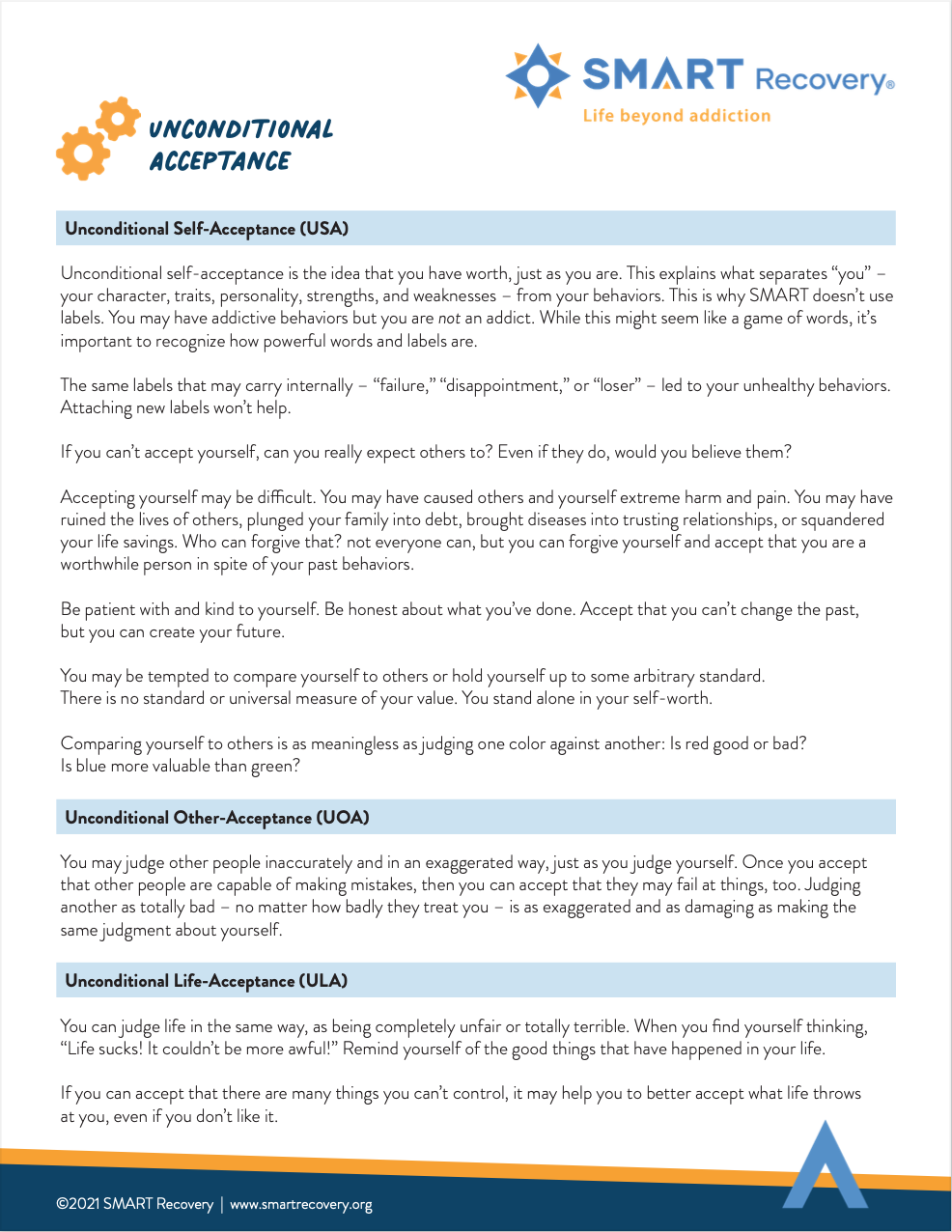Point 2
Unconditional self-acceptance is the idea that you have worth, just as you are. This explains what separates “you” — your character, traits, personality, strengths, and weaknesses — from your behaviors. This is why SMART doesn’t use labels. You may have addictive behaviors but you are not an addict. While this might seem like a game of words, it’s important to recognize how powerful words and labels are.
The same labels that you may carry internally — “failure,” “disappointment,” or “loser” — led to your unhealthy behaviors. Attaching new labels won’t help.
If you can’t accept yourself, can you really expect others to? Even if they do, would you believe them?
Accepting yourself may be difficult. You may have caused others and yourself extreme harm and pain. You may have ruined the lives of others, plunged your family into debt, brought diseases into trusting relationships, or squandered your life savings. Who can forgive that? Not everyone can, but you can forgive yourself and accept that you are a worthwhile person in spite of your past behaviors.
Be patient with and kind to yourself. Be honest about what you’ve done. Accept that you can’t change the past, but you can create your future.
You may be tempted to compare yourself to others or hold yourself up to some arbitrary standard. There is no standard or universal measure of your value. You stand alone in your self-worth.
Comparing yourself to others is as meaningless as judging one color against another: Is red good or bad? Is blue more valuable than green?
Helpful Links
- Public-Facing USA Toolbox Page: www.smartrecovery.org/unconditional-self-acceptance
- Updated Tool PDF (03/2021): https://www.smartrecovery.org/wp-content/uploads/2021/03/USA.pdf
- Video Links:
- Unconditional Self-Acceptance (USA): https://youtu.be/sgM32-FF6gA
- Unconditional Others Acceptance (UOA): https://youtu.be/RN5-v8tr7d0
- Unconditional Life Acceptance (ULA): https://youtu.be/cbryEAekaps


